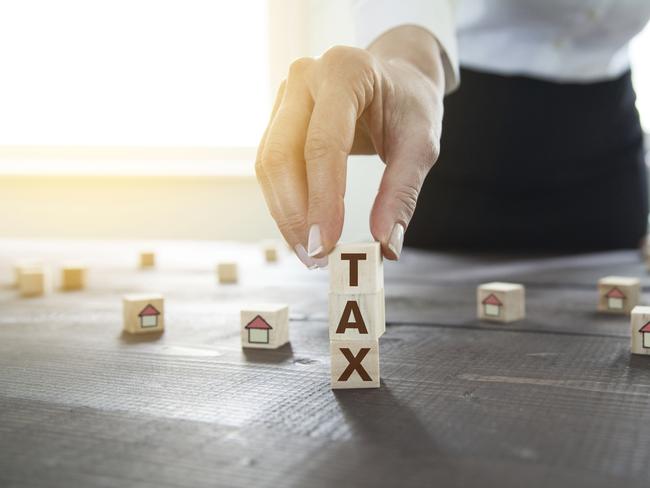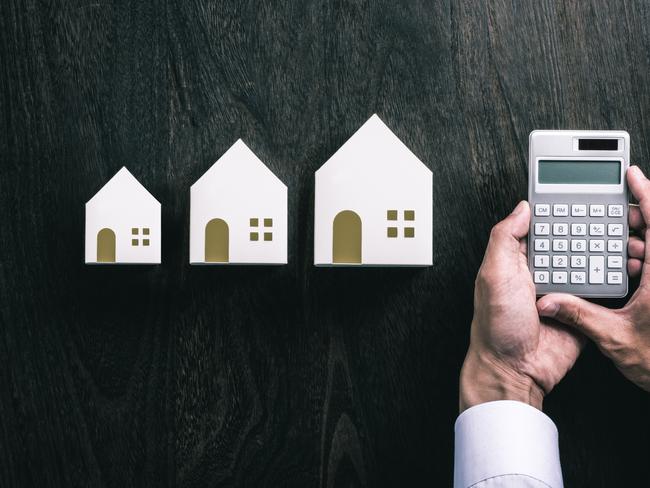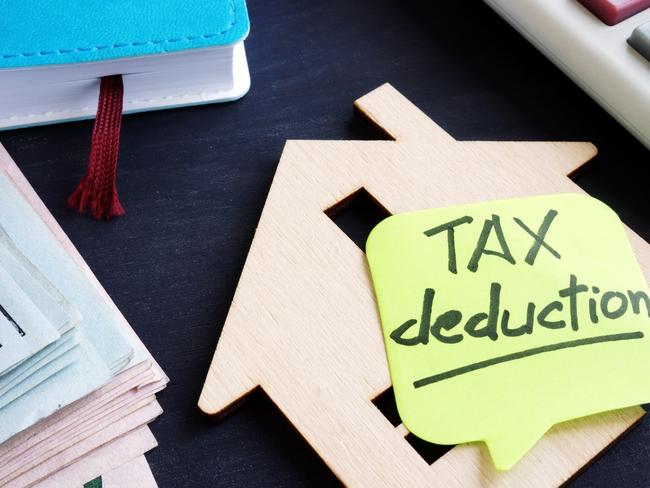How tax time will affect rental property owners in 2020
The ATO has warned Australians with rental properties of restrictions and requirements, despite being hit by COVID-19 and bushfires. This is how it will affect you.

National
Don't miss out on the headlines from National. Followed categories will be added to My News.
- Virus brings US ‘to its knees’ as Brazil wraps bodies in bin bags
- Pete Evans’ most bizarre beliefs over the years
Rental property owners affected by the coronavirus pandemic and forced to defer loan repayments as a result are able to claim interest charged on a loan as a deduction at tax time, the Australian Taxation Office has revealed.
Deductions for short-term rentals adversely affected by COVID-19 or other natural disasters can still be made as well, providing the property was still available for rent during this time.
However, the information released by the ATO on Thursday states owners cannot claim reductions if they decided to use the “decided to use the property for private purposes, offered the property to family or friends for free, offered the property to others in need or stopped renting the property out” throughout these periods.
These are just some of the vital things Australians should know before lodging their tax return.
I HAVE A REDUCED RENTAL INCOME. WHAT DOES THIS MEAN FOR ME?
Property owners and tenants have been placed in unforeseen circumstances as a result of the coronavirus pandemic, the ATO said.
Many are paying reduced rent or have ceased paying due to their income being affected.
The ATO said Australians should include rent as income at the time it was paid, so they only need to declare the rent they received as income. If payments by tenants are deferred until the next financial year Australians do not need to include these payments until you receive them.
“While rental income may be reduced, owners will continue to incur normal expenses on their rental property and will still be able to claim these expenses in their tax return as long as the reduced rent charged is determined at arms’ length, having regard to the current market conditions,” the ATO website listed.

“This applies whether the reduction in rent was initiated by the tenants or the owner.
“Some owners may have rental insurance that covers a loss of income. It is important to remember that any payouts from these types of policies are assessable income and must be included in tax returns.
“Many banks have moved to defer loan repayments for stressed mortgagees. In these circumstances, rental property owners are still able to claim interest being charged on the loan as a deduction- even if the bank defers the repayments.”
MY SHORT-TERM RENTAL HAS BEEN VACANT THROUGHOUT COVID-19 AND BUSHFIRES. WHAT DOES THIS MEAN FOR ME?
The ATO said it recognised circumstances in the past six months had changed the future of short-term rentals, with many cancellations or vacancies throughout COVID-19 and the bushfires.
In circumstances where COVID-19 or natural disasters have adversely affected demand, including the cancellation of existing bookings for a short-term rental property, the ATO said deductions were still available provided the property was still genuinely available for rent.
However, if owners decided to use the property for private purposes, offered the property to family or friends for free, offered the property to others in need or stopped renting the property out they cannot claim deductions in respect of those periods.

Assistant Commissioner Karen Foat said: “Generally speaking, if your plans to rent a property in 2020 were the same as those for 2019, but were disrupted by COVID-19 or bushfires, you will still be able to claim the same proportion of expenses you would have been entitled to claim previously.”
The ATO’s website stated “to determine the proportion of expenses which can be claimed for short-term rental properties impacted by COVID-19 or bushfires, a reasonable approach is to apportion expenses based on the previous year’s usage pattern, unless you can show it was genuinely available for rent for a longer period of time in 2020.”
“If you or your family or friends move into the property to live in it because of COVID-19 or bushfires, you need to count this as private use when working out your claims in 2020,” it said.
BUT WHAT ABOUT MY VACANT LAND? CAN I CLAIM EXPENSES?
The ATO said expenses for holding vacant land were no longer deductible for people intending to build a rental property on the land – and the property remains unbuilt – for the year 2020.
This will also apply to land which Australias may have been claiming expenses on in previous years.
This, however, does to apply to land used in a business or if there has been an exceptional circumstance, such as a fire or flood, leading to the land being vacant.

“So, if you are building a rental property, you cannot claim the deductions for the costs of holding the land, such as interest. However, if your rental property was destroyed in the bushfires and you are currently rebuilding, you can claim the costs of holding your now vacant land for up to 3 years while you rebuild your rental property,” the ATO’s website listed.
WHAT ABOUT TRAVELLING TO A RENTAL PROPERTY? CAN I CLAIM THAT?
No. Residential property owners cannot claim deductions for the costs incurred to travel to a residential rental property unless they are in the rare situation of being in the business of letting rental properties, the ATO’s website said.
CAN I CLAIM CAPITAL WORKS AND REPAIRS?
Yes, these – repairs or maintenance to restore something that is broken, damaged or deteriorating in a property you rent – are deductible immediately.
The ATO’s website said improvements or renovations were categorised as capital works and were deductible over a number of years.
“Initial repairs for damage that existed when the property was purchased can’t be claimed as an immediate deduction but may be claimed over a number of years as a capital works deduction,” it stated.
WHAT HAPPENS IF I RENT OUT A PROPERTY TO FAMILY? CAN I STILL CLAIM?
Properties need to be rented out or be genuinely available for rent to claim a deduction, the ATO’s website stated.
“Factors such as reserving the property or leaving it vacant over peak periods, not charging the market rate and the types of terms and conditions of the bookings are all taken into consideration when deciding if active and genuine efforts are being made to ensure a property is available for rent,” it said.

“If a property is not genuinely available for rent, you need to limit your deductions to the days when it is.
“If you are allowing friends or family to stay in the property at a reduced price, you need to limit your deductions to the amount of rent received for these periods.”
The ATO reminded property owners not to forget including all rental income, especially from sharing economy platforms.
“We are matching data received from these providers to information in tax returns and will be following up discrepancies,” it stated.
WHY KEEPING A RECORD OF EVERYTHING YOU CLAIM IS IMPORTANT
“The number one cause of the ATO disallowing a claim is taxpayers being unable to produce receipts or other documents to support a claim. Furnishing fraudulent or doctored records will attract higher penalties and may also result in prosecution,” the ATO’s website said.
Originally published as How tax time will affect rental property owners in 2020


